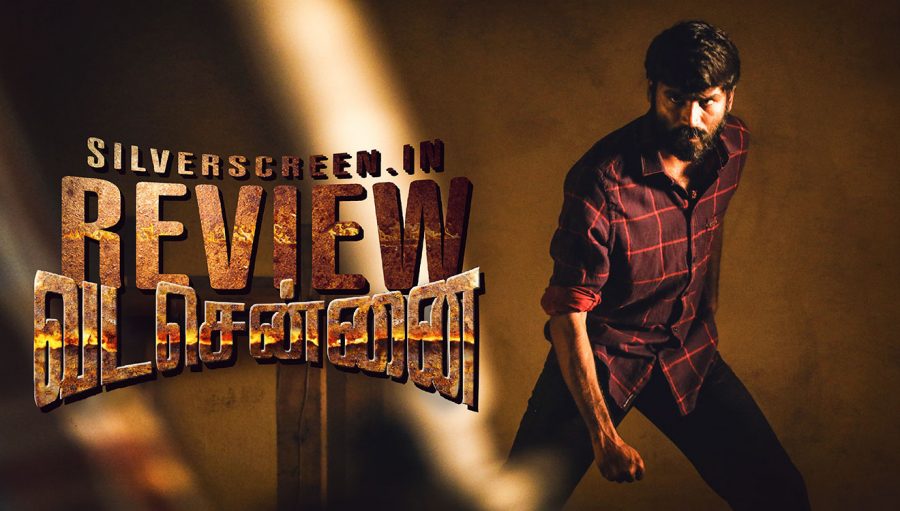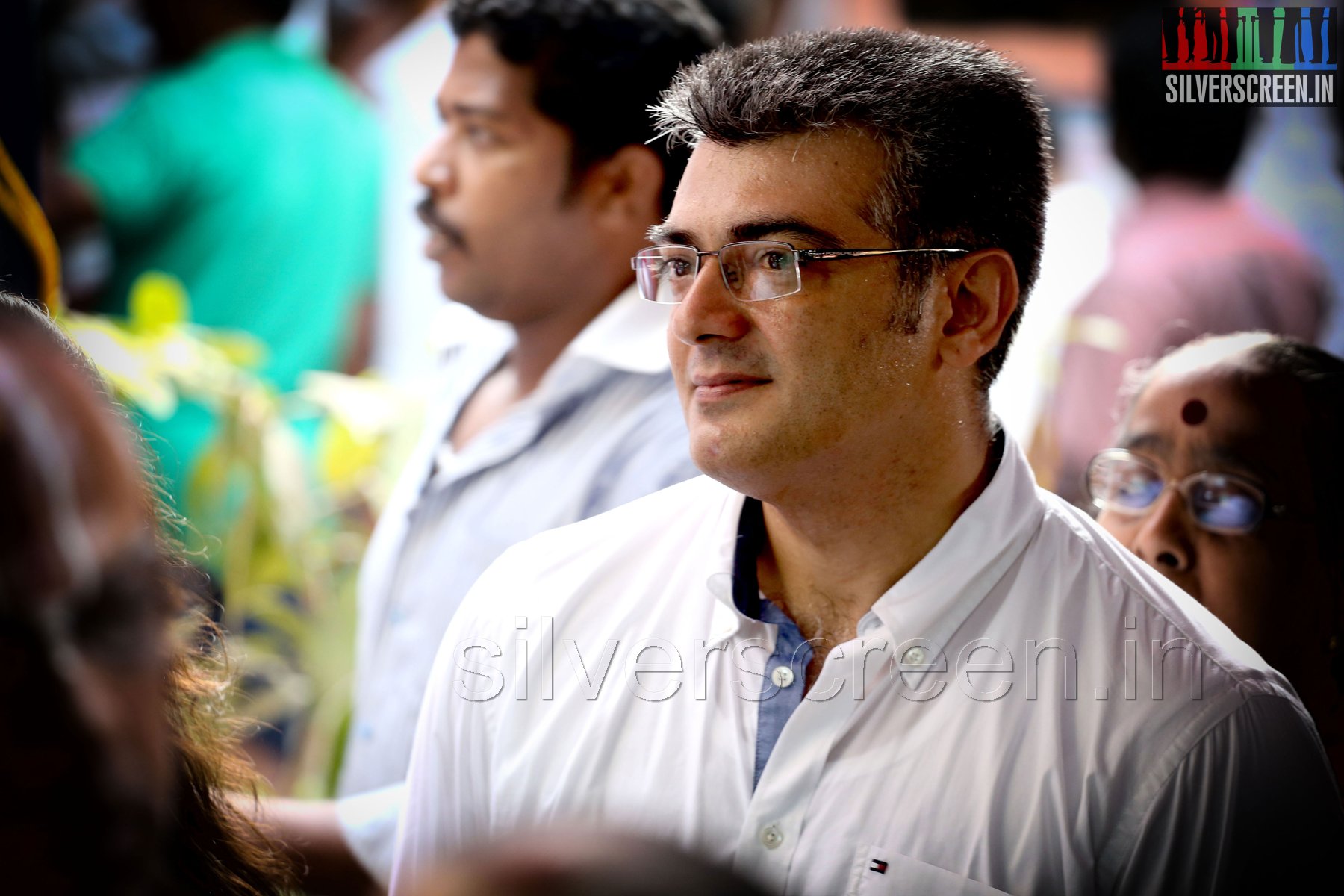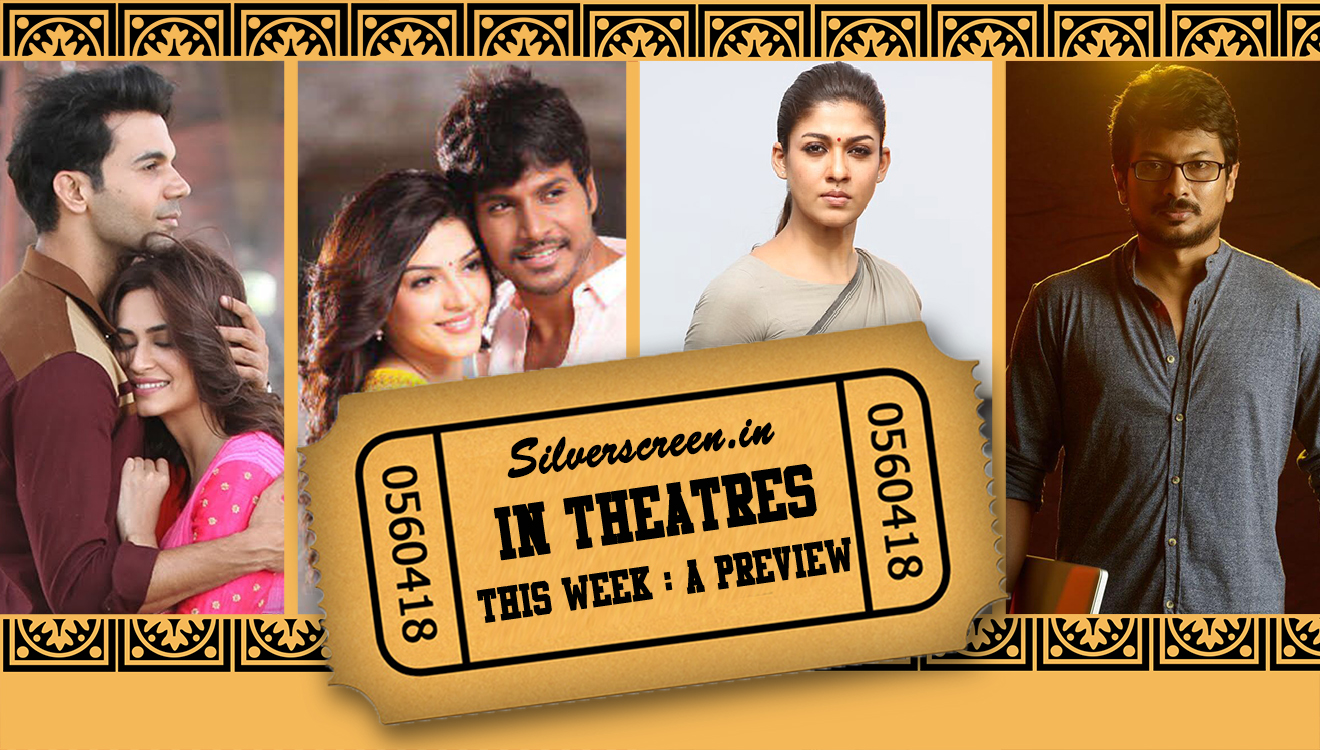Director: Vetri Maaran
Cast: Dhanush, Aishwarya Rajesh, Samuthirakani, Ameer
Composer: Santhosh Narayanan
Vetri Maaran’s Vada Chennai – first part of a planned trilogy – begins in medias res inside a local eatery where a sickle with pulpy flesh still clinging to it is flung across a table where food and plates must be. Weary men take the chairs around the table and try to dust their shirts off the same flesh. It is 1987 and MG Ramachandran has just passed. They discuss about a woman who is sure to take the reins from the then Chief Minister and how that would be a blessing for their business for the next twenty-five years. The story of Vada Chennai, of Anbu (Dhanush) and its vast network of threads began long before this event as we learn later. The casual toss up of these political changes and comments manifest into a different beast later in the film. Vetri Maaran keeps jumping between timelines and the film itself is divided into chapters dealing with three characters at a time. Sometimes, the character is not an individual. In one of the most important chapters, the character is the place. The region. As much as North Chennai is, in Vetri Maaran’s bloodshot portrait of a gangster amidst gentrification.
Vetri Maaran uses a narrator for his world building, but beyond that he doesn’t spoon feed the ways of this world. The little exposition he resorts to is confined to operations of the central prison where much of the first half action takes place. We first meet Anbu here, when a slot on the prison door opens to reveal his face. This is a multi-layered, complex script brought to life using some of the most breath-taking visuals and action accompanied by Santhosh Narayanan’s background score. The hotel scene is expanded upon later and it is splendid in its blocking, the way the camera follows the characters and a mirror that pits all of them in a single frame but from different vantage points.
There is a lot to take in – multiple players, who is with whom, why is Anbu here, which character died on the same day as MGR? We jump from 1987 to 2000, back to 1991 (En Rasavin Manasile‘s Raj Kiran adorns a wall) and then at one point we are in 1985. Some of this is not spelled out, we realize it is 1985 because we are told the Pope is slated to visit Madras the following year – which Google tells me happened in February 1986. Real world politicians and their names are directly referenced. An assassination during a carrom board tournament in the prison follows like a game of carrom itself, with the final blow looking like a thumbed shot that one player specializes in. Anbu of the early years plays with the black. Anbu of later years, having chosen to live away from all the gang wars, chooses white. There is one more carrom analogy in the larger scheme of Vada Chennai – in a hurry to win the game, some men fail to recognise that they have pocketed all the coins leaving no cover for the queen. Vetri Maaran plays his cards close to his chest with some of the thrilling aspects, though it is not a rug pulling tactic, the meat is in the journey that he maps.
The ‘A’ rating feels like a blessing for Vada Chennai as it keeps everything from the violence to the language organic. Profanities glide off the tongue as smoothly as Anbu’s coins on a powdered carrom board. The romance between Anbu and Padma (Aishwarya Rajesh who makes a case for the lead role if Pa Ranjith ever films a sequel to his Madras) is entertainingly written and devoid of most clichés. Dhanush sells his early 90s funk-haired lover boy as effortlessly as he does his not so intrepid, always on the toes leader-in-waiting.
The non-linear screenplay makes it difficult to connect all the threads, as does Vetri Maaran’s foreshadowing. We see a long scar on Guna’s (Samuthirakani) chest in early portions and we see the conception of that wound later. Guna compliments Chandra’s (a wonderful, restrained Andrea Jermiah) – who is married to Rajan (Ameer) – cooking and wishes he had a wife like her. The weight of this offhand statement descends upon us soon after. There is a mysterious woman posing as a chronicler, commenting on present and future events – possibly the stand-in for Macbeth‘s three witches that Vetri Maaran mentioned in a recent interview. And there is Lady Macbeth herself, pulling the strings from afar with a long game of her own, and an accumulated troop of trustworthy men under her wing.
Even if it is built like a violent gangster saga, Vada Chennai has a heart that throws itself into the ring of recent films that talk about the politics of the oppressed. Rajan is a father figure in Anbu’s ghetto who creates the sports club where Anbu has sharpened his carrom skills since the time he was a kid. He talks about the importance of education, of self-care and self-preservation. The ghetto is a world of its own that outsiders don’t understand, and men clad in shirts and tie don’t speak the language of. The entry to this ghetto from the side of an urban looking busy road is through a literal hole in the wall. An outsider who is out to kill is advised not to follow the native, he would lure you into a maze that you know nothing about.
Recommended
There is a threat of gentrification, a highway coming up over this settlement which was the bone of contention in the mid-80s as it is in the mid-00s. It is similar in design to the gentrification of Ernakulam and its surrounding areas that Rajeev Ravi documented in his Kammatipaadam. Here too, there is a man like Krishnan (Dulquer Salman) who moves away not wanting anything to do with the gang war past – Dhanush’s Anbu. Vada Chennai is a fine companion piece to the Malayalam film with Ernakulam becoming Ennore and the surrounding areas. Vetri Maaran devices some delicious words to go along with his action. A punch dialogue involving anchors and ships is uttered twice because it is that good. There is one more dialogue from Anbu when Chandra asks him to go away for good. He says people leave in the confidence that they have a place to return to, a home that would always be there for them. By the end of the film, which is a beginning of a different kind, Anbu realises that a responsibility has fallen upon his lap. It is almost 20 years since his predecessor and unlike the past, he now has an educated bunch of men as his allies. Where would Anbu, deserted by loyalty, go from here?
*****
The Vada Chennai review is a Silverscreen original article. It was not paid for or commissioned by anyone associated with the movie. Silverscreen.in and its writers do not have any commercial relationship with movies that are reviewed on the site.



